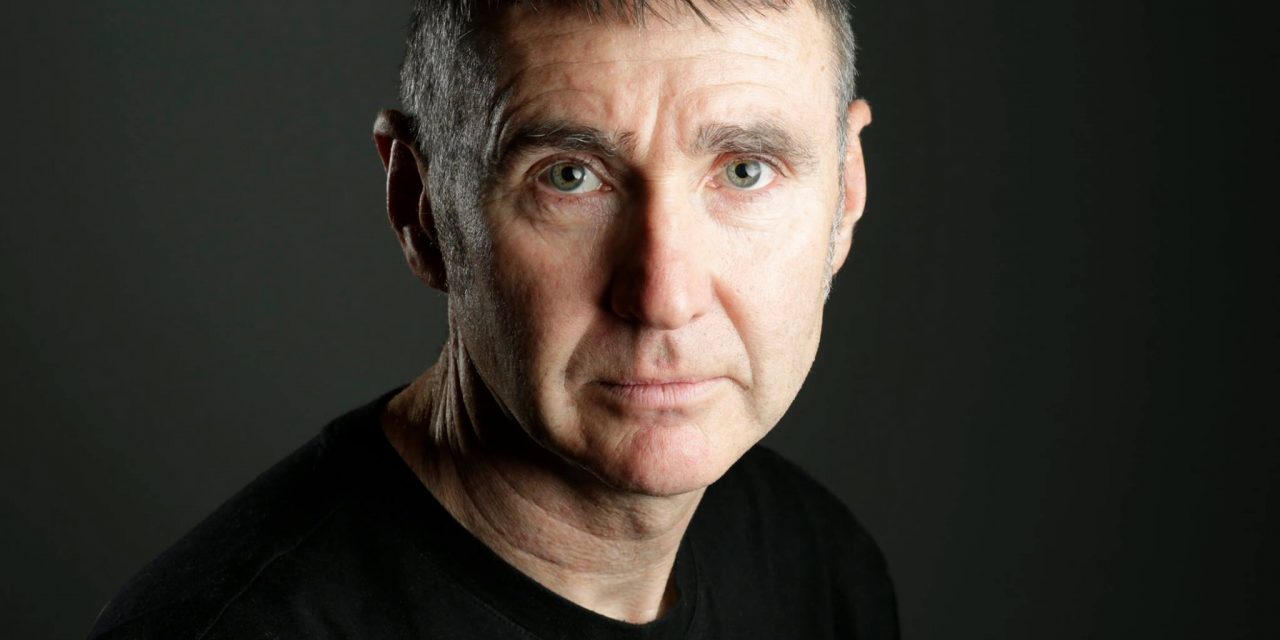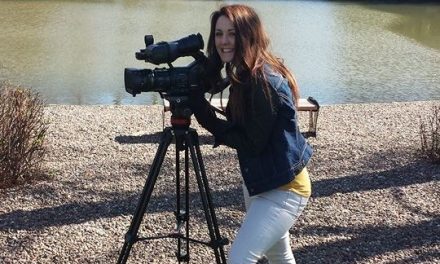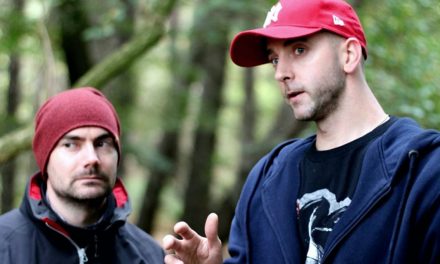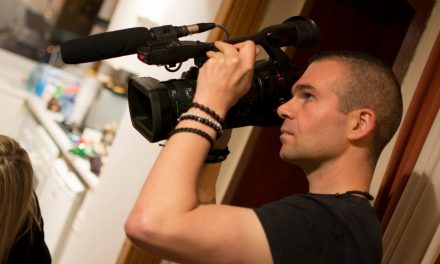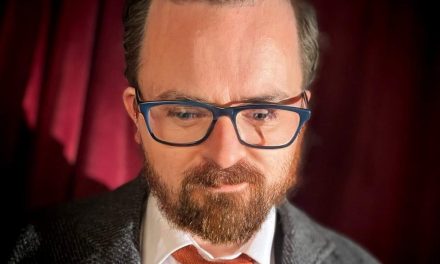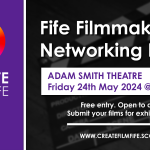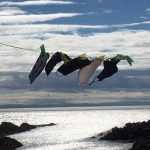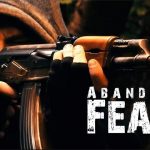Name: David Cruickshanks
Primary Skill(s): Writing, Acting, Comedy
Other Skill(s): Photography, Filmmaking
We interviewed writer, actor and comedian David Cruickshanks about his varied career background, how to connect with an audience, the therapeutic power of art and the search for the perfect punchline.
Tell us a bit about yourself and your background.
I’m a war veteran turned photographer turned writer/actor with a bit of film making thrown in for good measure.
I spent 6 years in the Royal Navy, but I hurt my knee and I was medically discharged. Luckily, I loved photography and managed to land a job on the local paper and my photographic career just sky-rocketed from there.
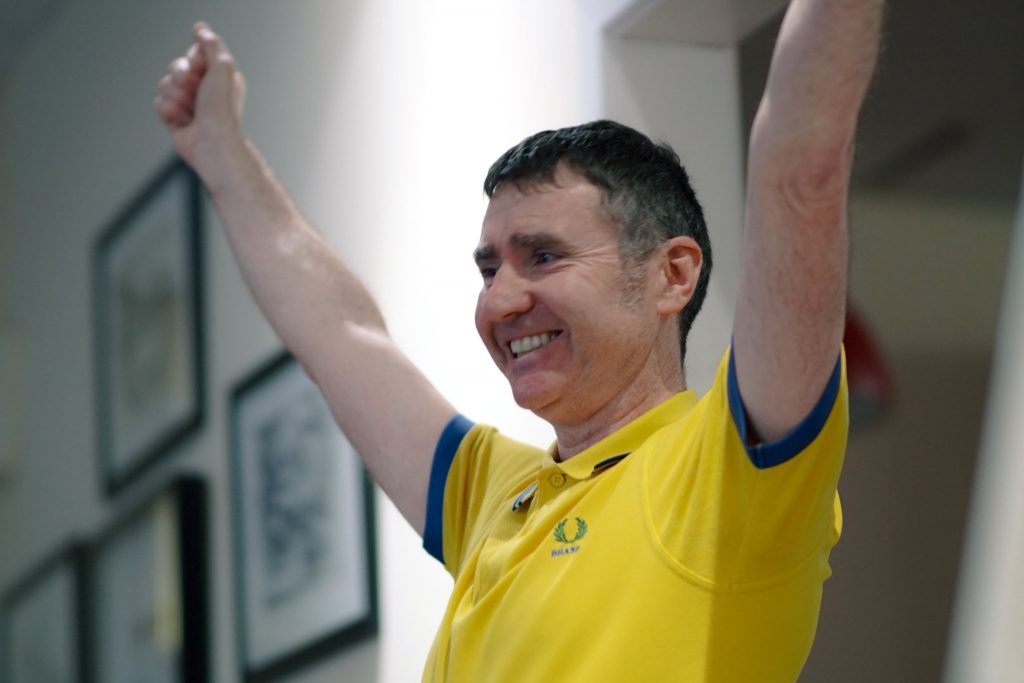
How did you first get involved in the world of filmmaking, and what made you want to stick with it?
I did one of the first MATV courses at Glasgow Caledonian in 2011. It stands for Masters in Writing TV Drama. The course is run by top TV and film writers. We had access to writers and producers like Mark Millar who wrote Kick Ass, Mal Young and Phil Redmond from Channel 4 and people like Jed Mercurio from Line of Duty. These people would actually come and talk to lowly students like us. People were starting to shoot scenes from their own scripts, and with my photography background it seemed natural that I would become a shooter.
What were your first experiences on a set like?
I love the collaborative nature of film but that wasn’t always the case with me. As a photographer I fancied myself as a bit of an auteur, but to be honest I was just scared of collaborating, in case I was ‘found out’ so I shied away from working with other people during photo shoots.
Film making changed all that. In a short film I wrote and shot about charity muggers or “chuggers”, I worked with a great group of people, but the first day on set I tried to do everything myself. It quickly became clear that I needed help, so I learned to delegate and ask for help and the amazing thing is that people will help you because they want to see you succeed.
As an actor on a film set I realise that everything takes ages and I try to stay out of the way until I’m needed. I think it’s great to have the experience of being on both sides of the camera. I did some comedy sketches for Scottish Television and the director was so helpful and positive and I thought, that’s the kind of director I want to be.
I’ve also done a few crewing jobs with Lawrie Brewster and the Hex Media crew and they are always great fun, but the work always gets done. I think directors who can put everyone at ease are great to work with, but I also respect them when they say ‘Okay, we need to get this done now.’
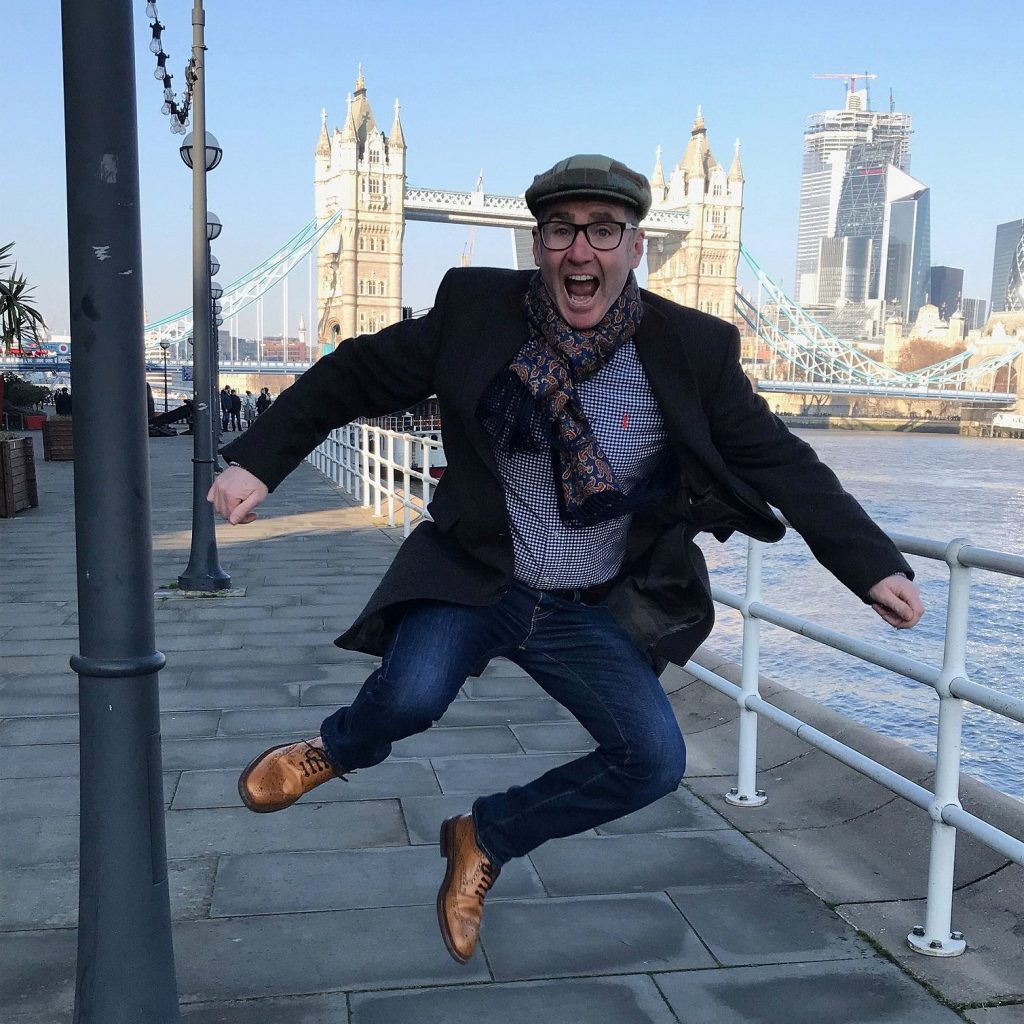
Tell us about your career before film, and what are the differences you’ve found between those worlds?
Like I said, a photographer is self-contained and self-reliant. I wasn’t even a fan of working with journalists when I was a press photographer; often we were looking for different things, but good journalists accommodate photographers and vice versa. As a photographer; particularly working in the press you only get one chance. If you cover a war or a disaster you can’t ask them to do it again. If you miss the shot, it’s gone forever.
At Princess Diana’s funeral, Prince William looked just like his mum as he watched his mum’s coffin being driven from Westminster Abbey, it was heart breaking to photograph but it was an iconic image. In the 90s we were still using film and we had a maximum of 36 shots. My iconic image was shot on frame number 36 so I was very fortunate to capture it.
You’ve been involved in a number of projects over the years; what have been some of the highlights?
Recently, I’ve had the chance to do some student films and I love them. The students really value your experience and they’re not afraid to experiment. I love working with Lawrie, Sarah and Michael at Hex. They know how to make you feel part of their film family and there’s always great coffee and buns on a Hex shoot.
Obviously, I’ve worked with you, [Gavin Hugh], and you’re a class act (Thanks!). Your recent film Cold is a great piece of work and I’m so jealous I didn’t get to work with you on that, but next time I’m petitioning for a part. Last summer, I got a part in Beans Goldblum’s Dick Dynamite and that was adrenalin fuelled mayhem, but in a good way.
I also landed a part in a film by one of my acting mentors Frank Gilhooley of Guardians of the Galaxy fame on a film he wrote called Betrayal. I wrote my part into the film and I had to learn my script and a Northern Irish accent in 12 hours. I think I did a reasonable job.
Your photography work has taken you to London. What are your thoughts on the differences between the cultures in London and Fife?
There is so much opportunity for a professional photographer in London, but it’s highly competitive and insanely pressurised. That’s not to say that people won’t help you but now there are so many photographers chasing work that it’s become very challenging. I think with everything the cream rises to the top, but it’s long hours, endless stamina and determination. Often on a shoot I’d be first in and last out. I’m sure that’s how most film directors feel.
In my portrait work, I often had just ten minutes with the sitter and that included setting up time. My portrait of Tony Blair which hangs in the National Portrait Gallery took less than 45 seconds and I was being man handled out of his office by Alastair Campbell just as I pressed the shutter. There certainly wasn’t that intensity when I worked in Fife, as press photographer for The Fife Free Press group after I came out of the navy, but I was still determined to be the best.
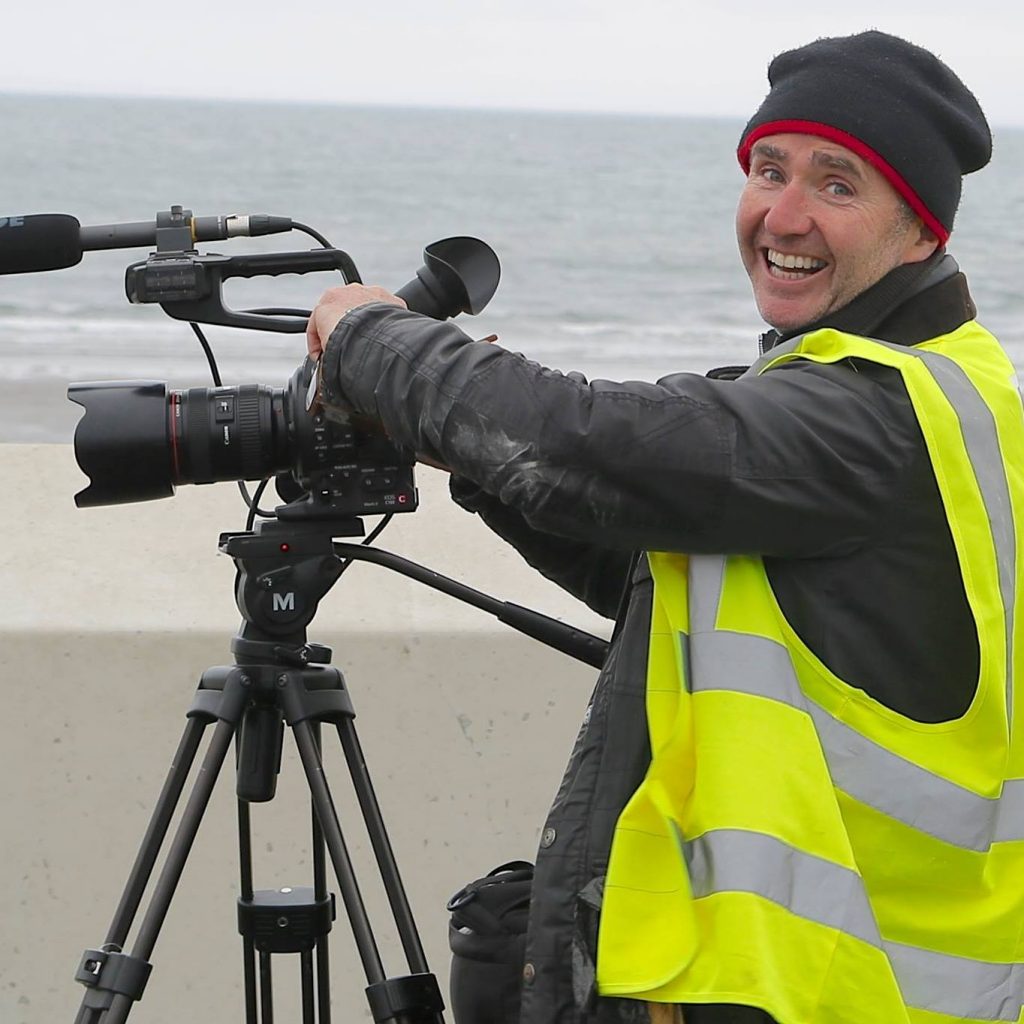
You’ve worked both behind the camera and in front of it. Which do you prefer?
That’s easy. I’m 100 percent committed to being in front of the camera now. I just love the fact that when I go home after an acting or stand-up gig, I don’t have to spend the rest of the night in an editing suite. I really admire editors; the great unsung heroes of the movie world.
You recently moved your focus to doing more acting and comedy. What made you decide to focus on these pursuits?
It’s a good question. I was motivated by fear.
In London, I had a bit of a breakdown. It was the perfect storm of too much work and a crisis of confidence. I was working with high end clients like Bombardier Aerospace, Porsche, Country Life and dozens of newspapers and magazines along with top celebrities like Muhammad Ali, Lionel Richie, Mariah Carey and all sorts of people from the world of film and TV. I even got to photograph Robin Wright Penn and Dame Judi Dench.
The work was coming thick and fast and I didn’t know how to handle it. My breakdown was a cry for help for a different way to face my fears, so I embraced it and used it in a positive way. Instead of being terrified of my mental health issues I began to poke fun at my perfectionism-and this really lightened the load.
It’s taken a few years, but the scariest thing was getting on stage in front of 6 people in a church to do a 2-minute stand up set. Thankfully, they laughed, and I decided that I wanted to make people laugh at mental health as a way of reducing the stigma.
Acting is a great way to channel your energy and emotions and I feel comfortable with who I am now so that I can play vulnerable characters and not worry about my performance. At the end of the day, I have learned that you can only do your best.
When writing, are you drawn to any particular themes or genres?
I absolutely love dark comedy. When I was a teenager in the Falklands War comedy was our safety valve. There is nothing more cathartic than laughing at something taboo. My mental health set is close to the wind, but I say to people; “Hey! It’s my experiences, warts and all.”
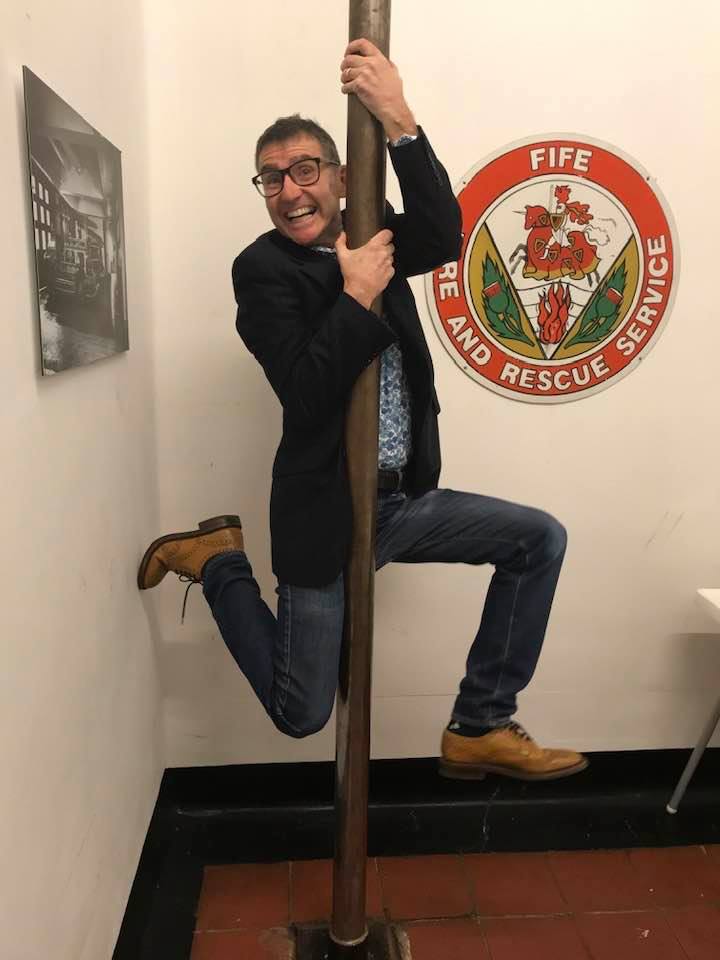
In comedy, where do you find inspiration for your jokes and material?
I try not to focus on other comedians. There’s this osmosis that goes on in comedy where you can convince yourself that you’ve written a great joke, but actually you’ve subliminally nicked a joke from last night’s Live at the Apollo.
I do have comedy heroes and they are normally the ones who burst the bubble of hypocrisy so Frankie Boyle for me is a helluva comedian. Then there is the comedy writing of Ricky Gervais. Both of these guys have immense courage and their work ethic is incredible. Anyone on stage that makes stand up look so easy that you think “I could do that’”is a great comedian. Jo Brand and Victoria Wood are comedy geniuses and I could watch Fleabag and Killing Eve on a loop.
My material is much more related to my mental health experiences. Someone came up to me at a gig when I had done two different sets and they said that they preferred the mental health one because it felt more like a lived experience. I think I know what he meant. Absurd newspaper stories are always worth trawling through and I do get sent material to write about for BBC Scotland’s Breaking the News although a report card of my hit rate on the show recently would read “Could do better”.
How do you establish a connection with your audience in stand up?
It’s a great question, and I found the answer last year when a very good comedian Richard Pulsford commented on my stage presence (or lack of it). He said that I wasn’t connecting with the audience although he liked my material. The answer was very simple. You have to forget the spotlight and look around at the audience. It takes time and probably thousands of gigs to be anywhere near the top of your game.
Sometimes you worry about forgetting your material but if you have rehearsed enough you should be able to interact and even ad lib with your audience. It’s early days for me, but I’m getting better all the time. (He says without a hint of modesty).
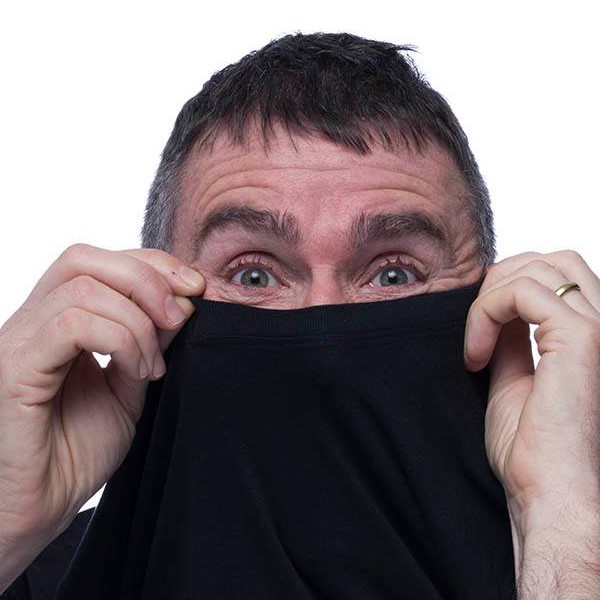
Where have you performed, and do you have a dream venue?
I think a dream venue is just when a gig goes really well. Recently I have had a run of really lovely gigs including as a support act for Lubna Kerr at The Fire Station Creative in Dunfermline. I’ve performed at comedy clubs in Edinburgh and Glasgow and I loved being on an open mic spot with Scots comedy legends Ray Bradshaw and Janey Godley. I had a taste of the Edinburgh Fringe last year as a guest on Richard Pulsford’s show and I was going to do my own show this year but sadly coronavirus has put paid to that – but next year, who knows?
When acting, how do you try and prepare for a role?
Lines for me are key because I can’t relax into character until I have them back to front. My wife is my line coach (unpaid). I think the better suited you are to a role the better you can prepare. There’s no point in me trying to play an action hero because I’d probably need three weeks off if I broke a nail. I like psychological stuff and I love strong emotional parts. You know when someone has written something well because immediately you are on an emotional roller coaster with the character.
What is your favourite thing about being on a set or on stage?
It’s the idea that so many people are working towards the same thing. I also love it when the director says: “Cut! That was awesome, but can we just do it again?”
How important do you think team chemistry is on set?
I think it’s great if you can get it, but I don’t think it’s the end of the world if it doesn’t happen. You have to be open about it and sometimes people don’t gel but if they are good actors then they’ll get past it and produce a performance.
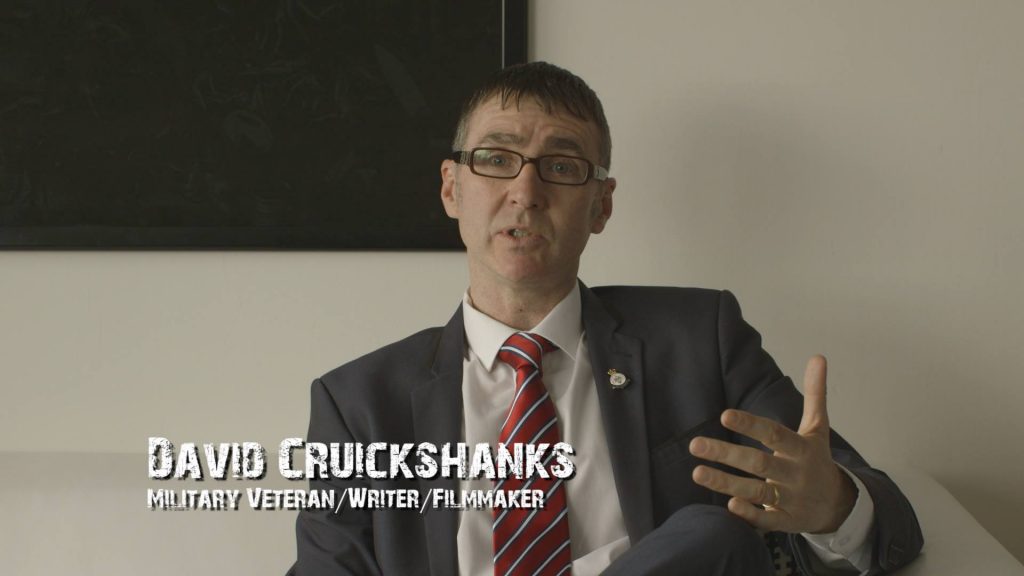
Do you prefer serious, dramatic roles or extravagant, comedic ones?
If I think I can do it, I’ll do it. There’s so much comedy potential in good drama writing that I think you have to be good at both. I recently auctioned for an online comedy wearing nothing but my pants a snorkel and a pair of marigolds.
Tell us about some memorable moments from your career?
As a photographer it has to be spending a day with Muhammad Ali at The Savoy. It doesn’t get any better than that.
I also got a chance to return to The Falkland Islands and I did a video diary of my time there. It was very emotional for me. You can hear it in my voice as I did my piece to camera, but I was so glad I went back.
Although I don’t recommend this, I once slagged off a comedy producer’s radio show and he wrote back asking me if I thought I could do better. I said I could-and I got the gig.
Any time spent around the Fife filmmaking community is time well spent. Even running around abandoned hospitals for prank videos that have over 18 million hits has to be a highlight of anyone’s career.
Have there been any roles you found particularly challenging?
I think they should all be challenging.
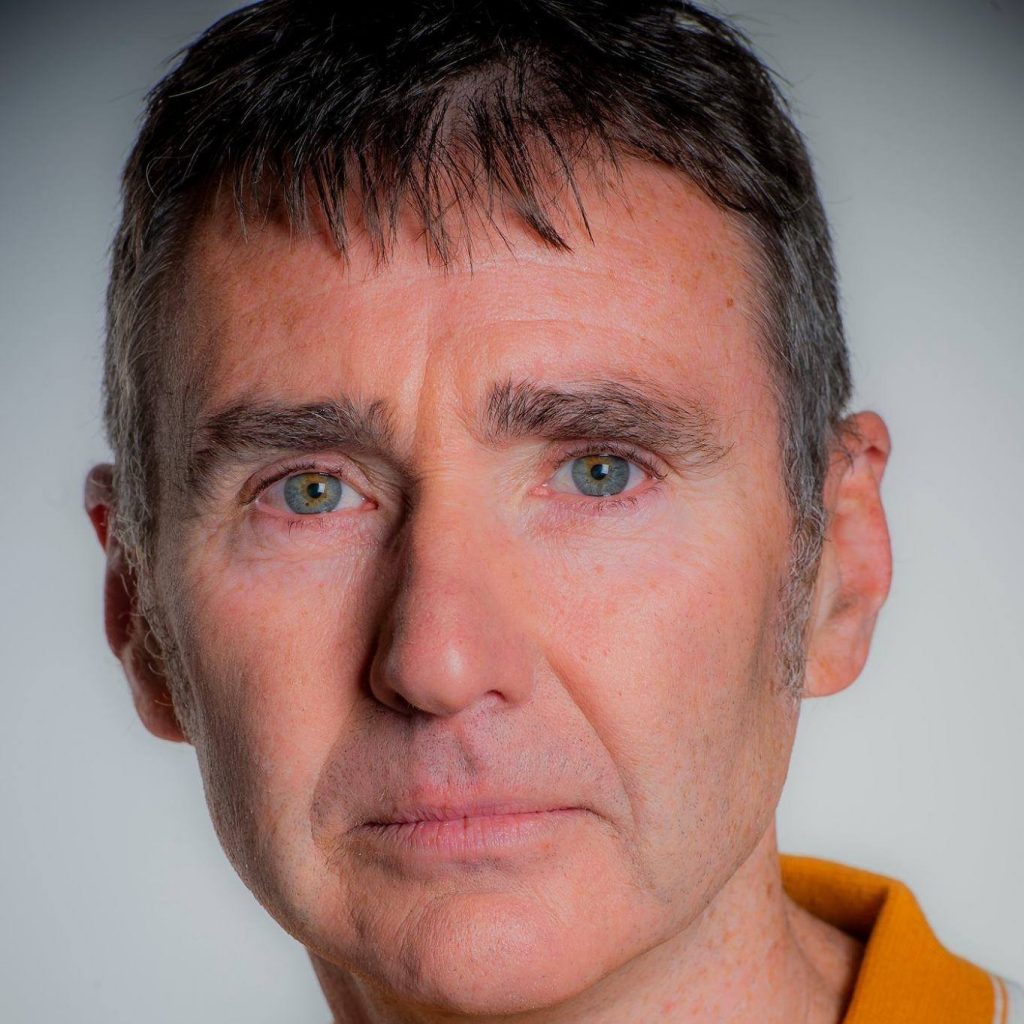
Do you have a project that you’re proudest of?
I did make a short film about WWI and dementia. Although it really needed more technical work, I was very proud of the actors and the story.
You’ve spoken before about both tinnitus and mental health issues. Do you feel creative expression can help with those challenges? Do you think this kind of creativity can help others, too?
Totally.
Creative expression is a great way of positively communicating negative experiences. When I first contracted tinnitus 4 years ago I contemplated suicide. I have to be honest because honesty is what the mental health community needs to hear. I was so angry because I’d fought my mental health issues for almost 40 years and then; Bang! I had something else that knocked me for six.
It took me a very long time to accept tinnitus which is a constant ringing or buzzing in your ears. Slowly I discovered mindfulness and meditation-and this helped me relax. Once I was able to manage it better, I was able to think about being creative again. My tinnitus became permanent the same day that I did my first real stand up gig which was in front of 250 people. I always hoped the tinnitus would disappear, but I just couldn’t sit around and do nothing while I waited.
The last four years have been some of the most creative of my life. I see my life as a bit of a battle, but surrender is not an option.
Outside of the worlds on stage and on film, tell us a bit about the other ways you like to spend your time. Are there other ways you like to create and collaborate?
I should be in the Guinness Book of Records as the world’s worst guitarist, but it doesn’t stop me trying to learn. I devour books and I’m working with an editor to have my own Falklands memoir published. I love cycling and I trained last year for the Invictus Games which is the veteran’s Olympics. I got to time trial through the streets of Sheffield on my bike. It was very emotional watching the people of Sheffield cheer me on. I didn’t make the final squad, but I loved every minute of it.
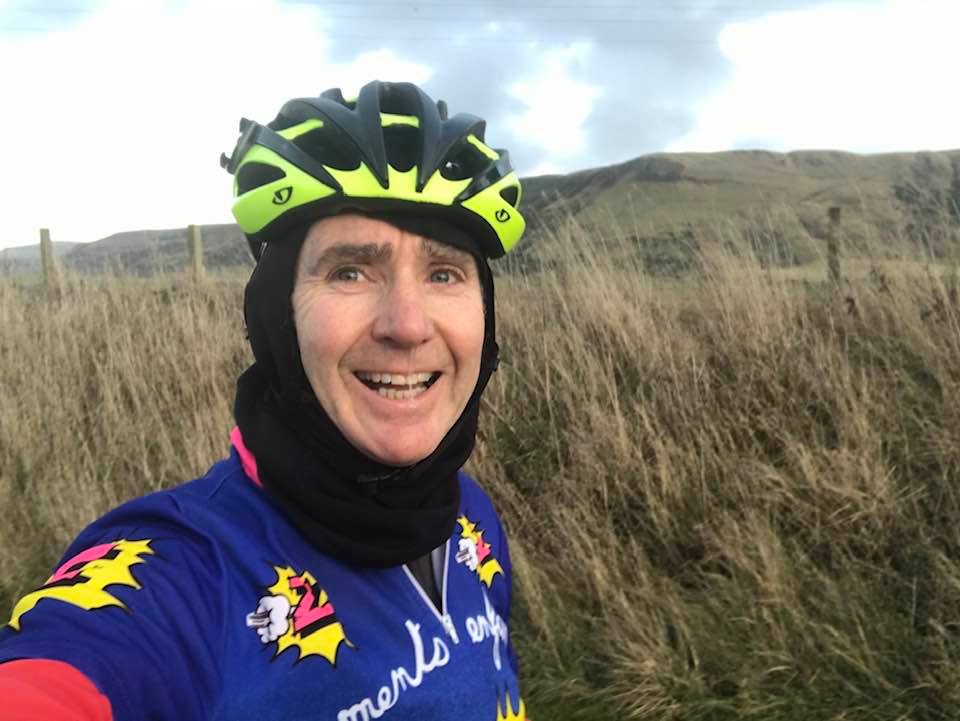
What are your thoughts on the filmmaking and arts communities, both in Fife and in Scotland as a whole?
The whole filmmaking scene in Fife should be the envy of the rest of Scotland and I hope that will be the case soon. I honestly believe that the depth and diversity of talent in Fife is amongst the best in the UK. We are also getting so much better at blowing our own trumpet without getting embarrassed. Our day will come.
Many people say there aren’t enough opportunities for creative people in Fife. What are your own thoughts?
I think you make your own luck to a certain extent. I’ve signposted Fife’s unique filmmaking industry to other people but traditionally the creative hub in Scotland has been Glasgow and London is often viewed as an essential destination for career enhancement. We can change that by continuing to produce great movies and distribute them.
Local government need to have the confidence and ambition to put serious money into this industry – and believe me when I say it is an industry – so that it can grow and become a major employer in Fife. That should be the ambition of everyone connected to film in Fife.
What projects are you hoping to do next?
I’m working on a sitcom script and I’m loving it. I hope to do more acting and some voice over work and I can’t wait to finally get my book published. Hopefully when things open up again, I’ll get back into my stand up but in the meantime, I’m loving the ingenuity of Zoom and Tik Tok so expect something crazy from me soon. I have an electric guitar and I can access my roof so that’s a hint.
What words of advice would you give someone new to acting or filmmaking?
Turn up, listen and have fun.
Your favourite film and why.
Alien. That movie was made in 1979 and I think it’s as fresh today as the day I saw it in a picture house in HMS Collingwood when I was still a 16 year old sailor. I was so scared I had a migraine for two days.
Any final thoughts?
Believe in yourself.
Follow David on social media at:
Facebook: https://www.facebook.com/unrealdavidc/
Twitter: https://twitter.com/TheUnrealDavidC/
David’s first blog post for the Creative Film Fife Network can be read here:
http://www.creativefilmfifenetwork.scot/scribblings-of-a-scriever/

